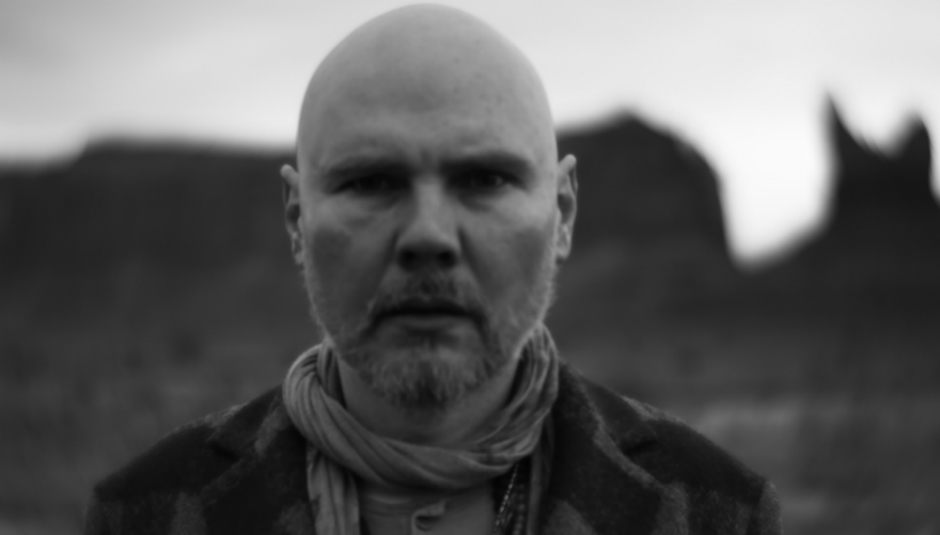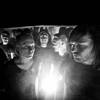Just over twenty years ago Billy Corgan fronted the most impactful band in the world. The Smashing Pumpkins, though just shy of Pearl Jam and Nirvana’s commercial success, stood apart from their grunge peers. While the others had an undeviatingly stark approach, the Pumpkins funneled their melancholy through boundless orchestration and a wider, more varied sonic picture. Mellon Collie And The Infinite Sadness, the band’s magnum opus, perfected this standout approach and solidified Corgan’s mythic status as a rock legend.
Few successes followed in the two decades after however. It saw the band’s general disintegration, but not before some spliced regenerations. The unimpeachably cool Corgan, who had headed the cult of teenage melancholia, swiftly settled into a middle-aged grumpiness. He is now a strange duality; an artist who we respect, but can’t help but laugh at. Once considered a wholly maudlin figure, he’s since bought a wrestling company, dated Tila Tequila, and starred in a furniture commercial - and these are only the headlines. He fits perfectly into our absurd, neo-dadaist sense of humour, because everything he does seems to be beyond meaning. If you’ve seen those photos of him at Disneyland, you’ll know exactly what I’m talking about.
And that’s where we’re at with Billy Corgan. Just a name change later, William Patrick Corgan is here with his solo album Ogilala - and both are facts that can be laughed at. As I’m sat in a room with 69 other attendees (another fact you can laugh at if you must) who are waiting to see Billy Corgan, the anticipation is palpable. We’re sat in a very small theatre under the RSA in London, ready to watch Pillbox, the film which accompanies the new album. With every shuffle, each head turns towards the noise, knowing that at any moment this tiny room could have Corgan in it too.
The film begins, and with no sign of the man himself, our attention is fixed. It’s in black and white, with title cards and Corgan’s distinctive voice rowing back and forth. A squeaky clean guitar is his main accompaniment as the music soundtracks the scene of a man off to war. It’s suspiciously conventional. Our expectations are soon met when the hero descends into a bad acid trip underworld, where he finds himself at an Indian prince’s dinner party. Long story short, he gets his eyes pierced out by a clawed woman, meets a man and his dwarf, fights death, and then loses. The final cards question whether love is worth anything when that thing will one day die. It’s a concern that I imagine a now 50-year-old, settled down with wife and kid, Corgan shares. The film ends, with all of us forgetting the feeling of impatience. “I don’t think I moved once during that” I heard other audience members say.
We’re then led into a series of underground vaults, one with wine and beer, one with a microphone and guitar, and another displaying a slideshow of Billy Corgan’s face. After 20 minutes he enters the vaults like some sort of scary uncle. To see an icon in the flesh is terrifying because a) it deletes all the mythology which surrounds them and b) they are in the same space as you, and you are out of control of the situation. We’re used to controlling our idols by playing their music just when we’re in the right frame of mood, but this time we’re confronted with a real presence.
A Q&A puts both audience and Corgan at ease, as he reiterates the facts we’ve learned from this press cycle so far: he’s up for a Smashing Pumpkins reform, he’s dubious of PC culture, and he can’t address his switch to ‘William Patrick Corgan’ without a sheepish laugh. And yes, that Smashing Pumpkins reform is likely, but Corgan questions how well the band will fair in “our politically correct society”. There are glimmers here of what has made Corgan such an off-putting and infuriating character. A lot of Corgan’s art draws from Eastern mythology and minority groups, without any credit to the source. It seems Corgan’s huff at PC is a way of dismissal. “Rock and roll came over from the Brits, but it originally came from the strange stuff, like Muddy Waters.” It is telling that Corgan hasn’t scrutinised just what that ‘strange stuff’ is.
But then he picks up his guitar. I still resent him, but now I’m also infatuated. Playing around five songs from the new album, he convinces us that despite it all, what he does is great. It may be unfortunate, or it may be redeemable, but Billy Corgan is a great. Somewhere in his spiritual and solipsistic universe, there is something worth excavating. There isn’t a single false note or accidental scratching of the strings to break the spell, as Corgan is in complete control. Right now, he is perfect.
“I was only going to play five songs, but I feel like playing some more,” he says. He reaches for the other guitar and plays the triumphant opening chords of Mellon Collie’s 'Tonight, Tonight'. The little crowd gasps. He transitions from the orchestra-evoking strumming to fingerpicking without any effort, and it sounds as though the whole band is in that one acoustic guitar. He treats us further to '1979' and Siamese Dream's’ hit ‘Disarm’, with the only deep cut coming from the band’s 2000 album Machina. I revisit the album that night and to listen to the band’s entire discography in the following days. The once grossly self-piteous and histrionic frontman smiles graciously after each song, and shakes my hand at the end of the night with a sleepy congeniality. I now understand the transition from Billy the Kid to ‘William Patrick Corgan’; it’s as grown up as it is silly. And just for a moment, there’s no desire to laugh at him.
Ogilala is out on the 13 October via BMG. For more information about Corgan, including forthcoming tour dates, please visit his official website.






















